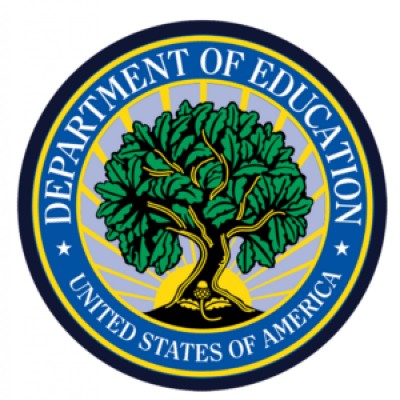Today, the U.S. Department of Education (Department) announced first-ever awards, totaling over $18 million, for the Augustus F. Hawkins Centers of Excellence Program grants to increase high-quality teacher preparation programs for teachers of color, strengthen the diversity of our teacher pipeline, and address teacher shortages.
 The Augustus F. Hawkins Centers of Excellence Program (Hawkins Program), named for Augustus F. Hawkins, the first Black politician elected to the U.S. House of Representatives from west of the Mississippi River, supports comprehensive, high-quality teacher preparation programs at Historically Black Colleges and Universities (HBCUs), Tribally Controlled Colleges and Universities (TCCUs), and Minority Serving Institutions (MSIs). A priority in President Biden’s FY 22 budget proposal, this year marks the first time the Hawkins Program has received funding since its creation in 2008. In the 2022 omnibus, Congress appropriated $8 million for the grants under Part B of Title VIII, and the Department redirected an additional $10 million to bring the total for the Hawkins Program to over $18 million.
The Augustus F. Hawkins Centers of Excellence Program (Hawkins Program), named for Augustus F. Hawkins, the first Black politician elected to the U.S. House of Representatives from west of the Mississippi River, supports comprehensive, high-quality teacher preparation programs at Historically Black Colleges and Universities (HBCUs), Tribally Controlled Colleges and Universities (TCCUs), and Minority Serving Institutions (MSIs). A priority in President Biden’s FY 22 budget proposal, this year marks the first time the Hawkins Program has received funding since its creation in 2008. In the 2022 omnibus, Congress appropriated $8 million for the grants under Part B of Title VIII, and the Department redirected an additional $10 million to bring the total for the Hawkins Program to over $18 million.
“Thanks to President Biden’s leadership, I’m incredibly proud to announce the first-ever Hawkins Centers of Excellence Program grants, which will help Historically Black Colleges and Universities, Tribally Controlled Colleges and Universities, and Minority-Serving Institutions recruit and prepare a new generation of diverse and talented individuals into the teaching profession,” said U.S. Secretary of Education Miguel Cardona. “Today, more than half of our learners nationwide are students of color, and yet fewer than 1 in 5 educators come from communities of color. I’ll never forget the impact that my first teacher of color had on me as a student, and my experience tracks closely with years of research suggesting the profound, positive influence that educators of color have on students of all backgrounds."
Recently, Secretary Cardona laid out his vision to promote academic excellence, improve learning conditions, and prepare our students for a world where global engagement is critical to our nation’s standing. A key focus in his “Raise the Bar” agenda is to boldly strengthen the teacher pipeline to eliminate the educator shortage for every school. Across the country, school districts – particularly in underserved communities– are working to address longstanding educator shortages which have been exacerbated by the pandemic. As of October 2022, 27 percent of public schools had multiple teaching vacancies. These shortages were particularly acute for schools in high-poverty neighborhoods and schools with large portions of students of color where more than half of schools had multiple teaching vacancies (57 percent and 60 percent, respectively).
The Hawkins Program builds on the Department’s efforts to strengthen and diversify the teacher pipeline, especially as states and districts work to meet their staffing needs.
HBCUs, TCCUs, and MSIs are uniquely positioned to recruit, prepare, and place teachers who will provide culturally and linguistically responsive teaching in underserved schools. Grantees were selected based on their focus on key aspects of a high-quality teacher preparation pipeline, including evidence-based, comprehensive teacher preparation that emphasize classroom experience and mentorship.
Today’s teacher workforce does not reflect the demographics of the nation’s public school students. More than 50% of public school students are students of color, yet in 2017-18, the most recent year of available data, roughly 25% of teachers were teachers of color. And while English learners (ELs) are the fastest growing public school student demographic, comprising more than 10% of America’s enrollment, most states face a shortage of bilingual and multilingual teachers prepared and certified for language instruction or to teach ELs. These roles are critical for ensuring Americans can compete in the increasingly globalized economy, guaranteeing equal access to education opportunity for ELs, and creating a strong economy in which all Americans can thrive. Through their applications, all 12 grantees met a competitive priority by proposing projects designed to increase the number of well-prepared teachers from diverse backgrounds, as well as bilingual and multilingual teachers with full certification.


